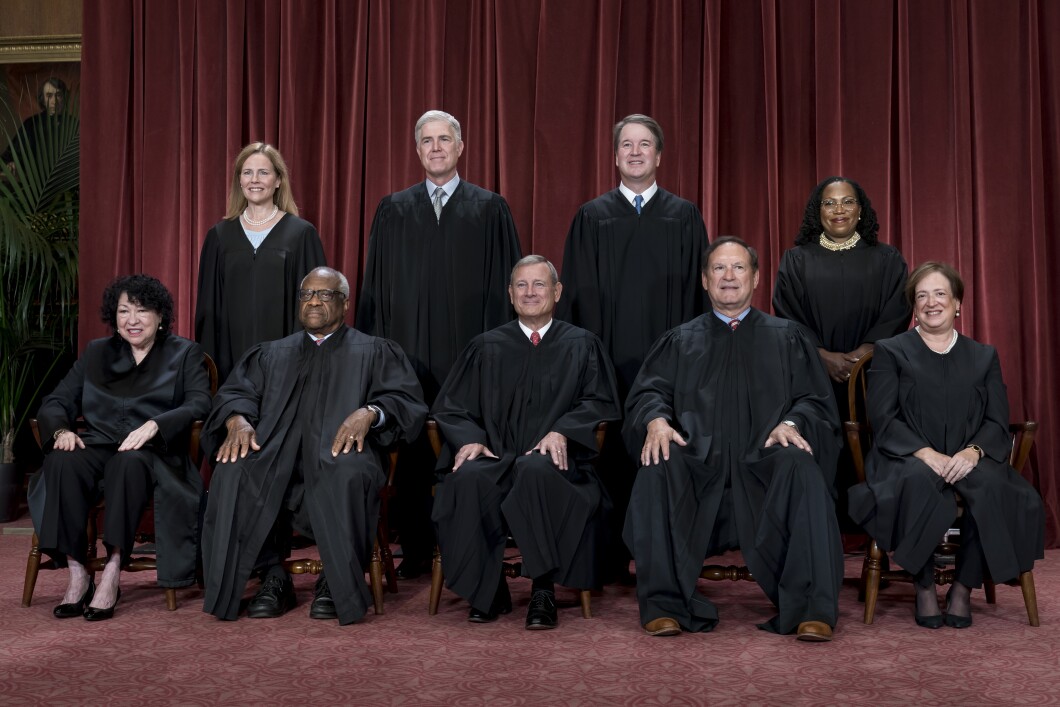
The Supreme Court issued two opinions on Tuesday ahead of its busy oral argument session on the Biden administration‘s student debt relief plan, repeating a pattern of non-traditional alliances among the justices in a small set of early rulings.
Liberal Justice Ketanji Brown Jackson authored her first-ever opinion in a dispute between Pennsylvania and Delaware over unclaimed money. The decision was unanimous, with support from some of the court’s six Republican-appointed counterparts, though not all of the conservatives joined her full opinion.
KETANJI BROWN JACKSON WRITES FIRST SUPREME COURT MAJORITY OPINION
The non-traditional alliances found in Jackson’s decision kept up a noticeable pattern from last week, in which the high court released three new opinions in less politically-charged cases argued this term, all three of which saw at least one of the court’s liberal justices in the majority.

Jackson’s decision on Tuesday found that Delaware could not keep the unclaimed funds simply because MoneyGram is based in the state. Rather, the funds should be distributed to the states in which the checks were initially purchased.
Eight other justices unanimously supported Parts I, II, III, and IV-A of Jackson’s opinion. She was also joined by Chief Justice John Roberts and Justices Sonia Sotomayor, Elena Kagan, and Brett Kavanaugh on Part IV-B of the opinion. But four conservative justices — Neil Gorsuch, Samuel Alito, Clarence Thomas, and Amy Coney Barrett — did not side with her on Part IV-B.
Keeping up with unorthodox alliances was a second opinion authored by Republican-appointed Gorsuch in Bittner v. United States, which saw Jackson join the majority along with conservative Justices Samuel Alito, Brett Kavanaugh, and John Roberts in a 5-4 ruling.
Through Gorsuch’s ruling, the high court tossed out a $2.72 million fine on Alexandru Bittner, a businessman who did not file reports for five years when he was abroad in Romania. Bittner argued the maximum penalty under federal law is $50,000.
The legal fight surrounded the Bank Secrecy Act, a law that is intended to combat tax evasion and money laundering by mandating U.S. residents report on their foreign holdings.
“Best read, the BSA treats the failure to file a legally compliant report as one violation carrying a maximum penalty of $10,000, not a cascade of such penalties calculated on a per-account basis,” Gorsuch wrote.
Notably, Barrett and Gorsuch typically fall in alignment on case rulings. This time, however, Barrett signaled a strong disagreement with Gorsuch, saying the defendant minimized his wrongdoing by arguing he only violated the BSA five times but ultimately “failed to report 272 accounts” out of his total violations.
“A person who fails to report multiple foreign accounts on a single annual form violates the BSA and its implementing regulations multiple times, not just once,” Barrett wrote. “So the Government was within its rights to assess a separate penalty against Bittner for each qualifying foreign account that he failed to report properly.”
CLICK HERE TO READ MORE FROM THE WASHINGTON EXAMINER
Although Gorsuch is considered a part of the conservative bloc, his 75% rate of voting in the majority was the lowest among the conservative justices last term.
And while both Barrett and Gorsuch typically find themselves on the same side in most cases, two cases argued last term — Becerra v. Empire Health Foundation and Concepcion v. United States — saw the justices on opposite ends.






